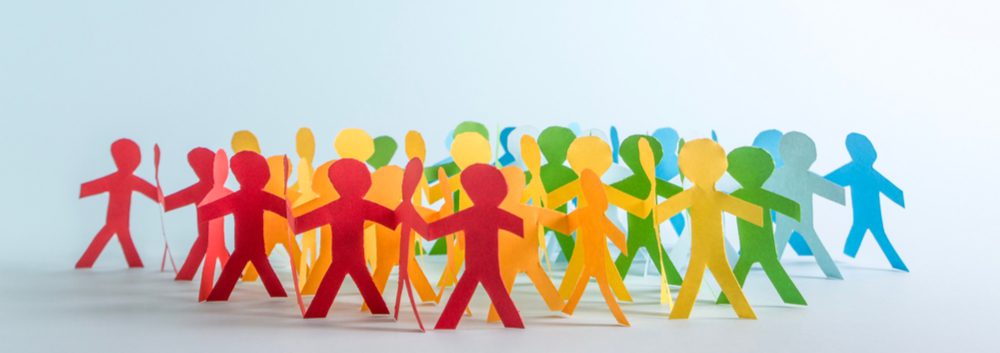35% of LGBT employees feel uncomfortable at work
- 4 Min Read
There is still a significant amount of the LGBT community who don’t feel comfortable at work. Why is this the case? And what can employers do to aid this issue?
- Author: Louron Pratt
- Date published: Oct 31, 2018
- Categories

Stonewall, the LGBT rights charity released a report ‘LGBT in Britain’ earlier this year. The report revealed that 35% of LGBT members don’t feel comfortable or included at work.

Discrimination
In this report, an even more shocking finding found that almost one in five, (18%) of LGBTQ employees have experienced derogatory comments or behaviour from their fellow co-workers. Additionally, 10% of LGBT people who are also ethnic minorities have been physically assaulted by customers or co-workers. Among trans workers, that number is 12%.
Although there have been some significant advancements in making members of the LGBT community feel welcome and comfortable within the workplace, there still seems to be a long way to go. With many LGBT staff feeling excluded by their peers and some being denied a job or promotion due to their sexual orientation or gender identity. Freddie, 59, from West Midlands, was a victim of this exclusion, saying “I retired early because of being outed in my workplace. My employer’s attitude was appalling: I was told it was my own fault and to put up with the abuse I received.”
It is clear that a significant amount of members are struggling to feel comfortable within their own job, this has been said to have an effect on certain personal mental wise. With many LGBT members suffering from mental health problems due to a lack of inclusion and criticism. Michael Wardlow, chief commissioner of the Equality Commission commented on these concerning levels of criticism, saying “The highest level of negativity was reserved for the smaller minority of people who struggle with their gender identity – trans people,” he said, adding: “Everyone has the same rights under our equality and hate crime laws to lead a life free from discrimination, abuse or harassment. But prejudice is still rife.”
“I retired early because of being outed in my workplace. My employer’s attitude was appalling: I was told it was my own fault and to put up with the abuse I received.”
There are many employers that have attempted to combat this in various ways through their culture and policies. Glassdoor ranked the 25 best companies for lesbian, gay, bisexual, and transgender (LGBT) employees. Noticeable companies such as Google, Unilever, and Nike were front-runners on this list.
Scott Dobroski, Glassdoor’s Community Expert comments on this compiled list, saying “This list underscores the companies where diversity is appreciated, supported, and embraced, at several of these firms we’re seeing some efforts that specifically support their LGBT employees, from employee groups to community outreach.”
Being inclusive
To eradicate this issue, and make sure that LGBT workers feel comfortable and open at work, it’s important for employers to begin a mission solely dedicated to ending discrimination in the workplace. As well as taking the time to evaluate their inclusion policies. By paying more attention to their policies, and directly focusing on this issue. This should gradually make this a much safer place for LGBT workers to reside in.
Stonewall
Ruth Hunt, Chief Executive at Stonewall comments on how employers can aid this cause, saying “By allowing staff to be themselves in the workplace employers can create an inclusive, supportive workforce and get the best from everyone. Many have taken steps to reduce homophobic, biphobic and transphobic bullying by creating and enforcing clear policies. LGBT staff networks and visible LGBT role models and allies in leadership positions demonstrate that companies are championing a diverse workforce. Action to increase diversity in supply chains shows companies’ willingness to use their influence to promote inclusion among their partners.”
Stonewall commissioned YouGov to carry out a survey asking over 5,000 LGBT people in the United Kingdom about their life. This report investigates the specific experiences of the 3,213 employed LGBT respondents and their experiences of discrimination in the workplace as well as the extent to which LGBT staff still feel they have to conceal who they are at work.









